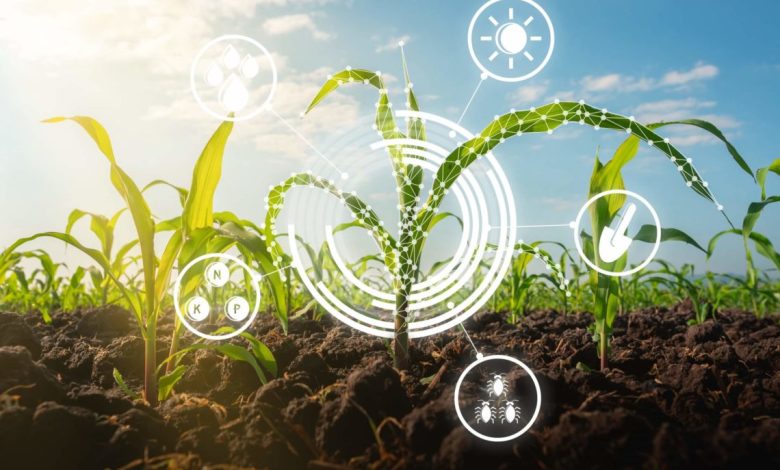AI in Agriculture: Growing the Future of Farming

Introduction
Artificial Intelligence (AI) has become a pivotal force in revolutionizing various industries, and agriculture stands at the forefront of this transformative wave. In the 21st century, farmers are increasingly turning to AI solutions to revolutionize their practices, ushering in a new era of productivity, cost-efficiency, and sustainability. Let’s delve into the expansive realm of AI in agriculture, exploring its applications, benefits, challenges, and the promising future it holds for the agricultural landscape.
Precision Agriculture
- Sensor Technology: AI integrates with sensor technologies, such as drones and satellite imagery, to collect real-time data on crop health, soil conditions, and weather patterns.
- Data Analysis: AI algorithms analyze the collected data to provide farmers with valuable insights. This enables precise decision-making regarding irrigation, fertilization, and pest control, optimizing resource usage.
Crop Monitoring and Management
- Image Recognition: AI-powered image recognition systems identify crop diseases, pests, and nutrient deficiencies by analyzing images of fields. This early detection allows farmers to take proactive measures, reducing crop losses.
- Automated Machinery: AI enables the development of autonomous farming machinery equipped with computer vision, allowing for tasks such as planting, harvesting, and weeding to be performed with increased efficiency.
Predictive Analytics
- Weather Forecasting: AI algorithms process large datasets to provide accurate weather forecasts. Farmers can leverage this information to plan planting and harvesting schedules, mitigate risks, and optimize yield.
- Yield Prediction: AI models analyze historical data, including weather patterns and crop performance, to predict future yields. This helps farmers make informed decisions about crop rotation, resource allocation, and market strategies.
Livestock Monitoring
- Health Monitoring: AI-powered sensors and wearable devices track the health and behavior of livestock. Any deviations from normal patterns can trigger alerts, enabling early disease detection and prompt veterinary intervention.
- Automated Feeding Systems: AI is used to optimize feeding schedules based on individual animal needs, reducing waste and ensuring optimal nutrition.
Supply Chain Optimization
- Predictive Logistics: AI assists in predicting demand for agricultural products, optimizing supply chain logistics, and reducing waste by ensuring timely and efficient delivery from farm to market.
- Quality Control: AI-powered systems inspect and grade agricultural products, ensuring consistency and quality in the supply chain.
Farm Management Systems
- Data-driven Decision Support: AI provides farmers with intelligent insights for decision-making, covering aspects like crop selection, resource allocation, and financial planning.
- Smart Irrigation: AI algorithms analyze soil moisture levels and weather conditions to optimize irrigation schedules, conserving water and improving crop yields.
Challenges and Considerations
- While AI brings numerous benefits to agriculture, challenges include the need for data privacy, infrastructure development, and ensuring accessibility for smaller farms.
- Ethical considerations around data ownership, algorithm transparency, and the responsible use of AI in farming practices are essential.
conclusion
AI in agriculture holds immense potential to transform traditional farming methods into highly efficient and sustainable practices, contributing to global food security and environmental conservation. As technology continues to advance, the integration of AI will likely play a crucial role in meeting the growing demands of an expanding global population.
FAQs
Can AI help with smart irrigation practices?
Yes, AI-driven smart irrigation analyzes soil moisture levels and weather conditions. This data-driven approach optimizes irrigation schedules, conserves water, and improves crop yields, making agriculture more sustainable.
What challenges are associated with the implementation of AI in agriculture?
Challenges include ensuring data privacy, addressing infrastructure limitations, and making AI accessible to smaller farms. Additionally, ethical considerations regarding data ownership, algorithm transparency, and responsible AI use in farming practices are crucial.
How does AI contribute to farm management decision support?
AI provides intelligent insights for decision-making in farm management. From crop selection to resource allocation and financial planning, AI assists farmers in making informed decisions, improving overall efficiency.
Source Links:









